Click on images to enlarge

infestation along a creek (Photo: Sheldon Navie)
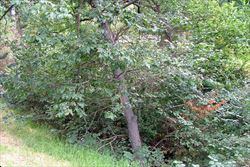
habit (Photo: Sheldon Navie)
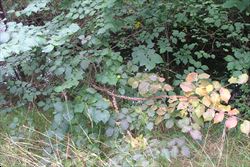
habit (Photo: Sheldon Navie)
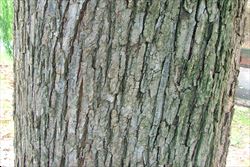
rough bark on main trunk of a mature tree (Photo: Sheldon Navie)
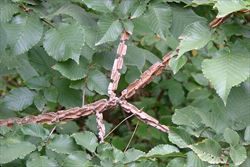
younger branches with corky wings (Photo: Sheldon Navie)
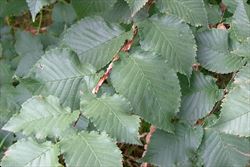
leaves with toothed margins (Photo: Sheldon Navie)

close-up of leaves with lop-sided bases (Photo: Sheldon Navie)
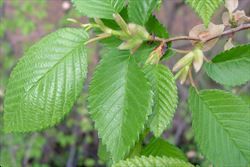
close-up of young leaves and shoots (Photo: Sheldon Navie)
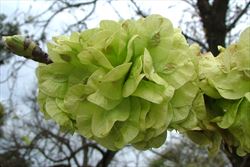
buds and clusters of immature fruit (Photo: Sheldon Navie)

close-up of mature fruit with papery wings (Photo: Sheldon Navie)
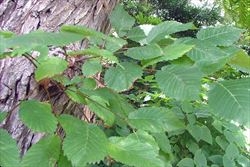
the bark and leaves of the very similar Dutch elm, Ulmus x hollandica (Photo: Sheldon Navie)

leaves of Dutch elm, Ulmus x hollandica (Photo: Greg Jordan)
Scientific Name
Ulmus procera Salisb.
Family
Ulmaceae
Common Names
Atinian elm, common elm, elm, elm tree, English cork elm, English elm, European elm, silver elm
Origin
Native to southern and western Europe (i.e. Hungary, Bulgaria, Greece, Romania, Yugoslavia, France, Spain and possibly also England).
Naturalised Distribution
Occasionally naturalised in some parts of southern Australia (i.e. naturalised in south-eastern South Australia, sparingly naturalised in south-western Western Australia, Victoria and the ACT, and possibly naturalised in eastern New South Wales).
Widely naturalised in other parts of the world, including in many parts of North America (i.e. in the USA and eastern Canada).
Notes
English elm (Ulmus procera) is regarded as an emerging environmental weed in South Australia, Victoria and Western Australia.

